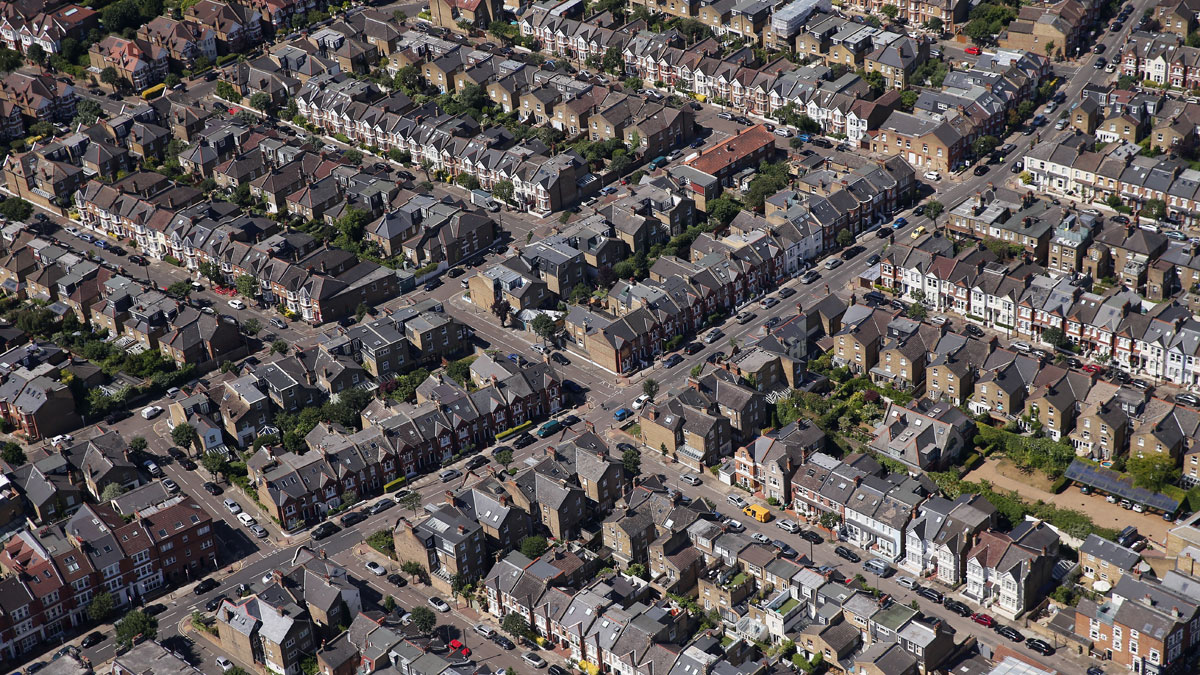Average UK income passes pre-crash peak
Pensioners cashing in as income finally rises above its previous high, but working age households still lagging behind

A free daily email with the biggest news stories of the day – and the best features from TheWeek.com
You are now subscribed
Your newsletter sign-up was successful
Another sign of Britain's economic recovery was seen today as official statistics emerged showing the average household disposable income has finally surpassed its pre-crash peak.
But while the figures from the Office of National Statistics paint a generally positive picture, in the detail they reveal growing inequality across age groups. In fact, as the row over cuts to working tax credits deepens, data reveal that pensioners are enjoying record relative wealth while working age households lag behind previous highs.
Median disposable income, adjusted for inflation and the number of people in each household, stood at £25,600 for the 2014-15 financial year. The Daily Telegraph notes this is above a pre-downturn high of £25,400 – and 6.5 per cent above the post-crisis low.
The Week
Escape your echo chamber. Get the facts behind the news, plus analysis from multiple perspectives.

Sign up for The Week's Free Newsletters
From our morning news briefing to a weekly Good News Newsletter, get the best of The Week delivered directly to your inbox.
From our morning news briefing to a weekly Good News Newsletter, get the best of The Week delivered directly to your inbox.
But median income for working age households, including both those on benefits and those in work, stood at £28,100 – £800 below the pre-crisis high of £28,900. At the same time, income for retired households grew further above its pre-crash high of £19,300 to £21,100.
"While typical pensioner income is at a record high, living standards for the typical working age household remain below pre-crash levels," said Adam Corlett of the Resolution Foundation. He added cuts to working age benefits, combined with the state pension 'triple-lock' that guarantees pensioners at least a 2.5 per cent income rise at a time of zero inflation, "risk reinforcing over this parliament."
Earlier this month, the Institute for Fiscal Studies published figures showing "generous work pensions and better state support" has pushed pensioners' income above that of their working age peers at £394 a week compared to £385.
Despite the recent shifts, The Guardian cites figures the show wealth in the UK has grown over the past four decades. Living standards have more than doubled since 1977, growing by just over 2 per cent a year on average. Since the crash income inequality has also fallen marginally, the report showed.
A free daily email with the biggest news stories of the day – and the best features from TheWeek.com
-
 How to Get to Heaven from Belfast: a ‘highly entertaining ride’
How to Get to Heaven from Belfast: a ‘highly entertaining ride’The Week Recommends Mystery-comedy from the creator of Derry Girls should be ‘your new binge-watch’
-
 The 8 best TV shows of the 1960s
The 8 best TV shows of the 1960sThe standout shows of this decade take viewers from outer space to the Wild West
-
 Microdramas are booming
Microdramas are boomingUnder the radar Scroll to watch a whole movie
-
 Brits keeping 21 million ‘money secrets’ from friends and family, survey reveals
Brits keeping 21 million ‘money secrets’ from friends and family, survey revealsSpeed Read Four in ten people admit staying quiet or telling fibs about debts or savings
-
 London renters swap cramped flats for space in suburbia
London renters swap cramped flats for space in suburbiaSpeed Read New figures show tenants are leaving Britain's cities and looking to upsize
-
 Should the mortgage holiday scheme have been extended?
Should the mortgage holiday scheme have been extended?Speed Read Banks warn that some homeowners may struggle to repay additional debt
-
 RBS offers coronavirus mortgage holidays
RBS offers coronavirus mortgage holidaysSpeed Read Taxpayer-owned bank follows measures taken in virus-struck Italy
-
 What are the changes to National Savings payouts?
What are the changes to National Savings payouts?Speed Read National Savings & Investments cuts dividends and prizes for bonds
-
 China clears path to new digital currency
China clears path to new digital currencySpeed Read Unlike other cryptocurrencies, Beijing’s would increase central control of the financial system
-
 Why are donations surging to the RNLI?
Why are donations surging to the RNLI?Speed Read Charity enjoys flood of funding after criticism for overseas work
-
 PPI deadline day: how to claim
PPI deadline day: how to claimSpeed Read Final chance for consumers to apply for compensation